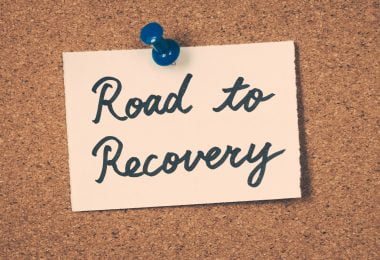The homeowners take an active role in this mode of treatment assisting them to take obligations and become favorable good example. Some Restorative Communities provide improved services for pregnant and post-partum females and their infants, that include coordination of prenatal/pediatric care. Social Model programs emphasize a sober living environment, peer counseling and case management.
Locals are expected to be http://lukasbicj645.image-perth.org/getting-the-what-to-do-after-drug-rehab-to-work included in the external neighborhood (through work, education, volunteer activities, and so on) Eligibility: For all three types of domestic services, people, eighteen years and older who are in early healing from alcohol and/or other drug dependency. Priority is provided to individuals with disabilities, cultural and linguistic minorities, homeless individuals, injection drug users, persons included with the criminal justice system and persons with or at threat for HIV/AIDS.

These programs offer a safe and structured therapeutic environment where women might get residential compound dependency treatment services while still maintaining custody and care of their kids. Reunification with children can happen while the mom is remaining at the program. Eligibility: Ladies with children who remain in early recovery and require support in developing and preserving life abilities necessary to accomplish drug totally free living.
Indicators on What To Say To Someone In Drug Rehab You Need To Know
Programs provide shelter, coordination and case management of substance addiction treatment and other services for homeless families in order to support and sustain sobriety. Eligibility: The targeted population is determined as homeless caretaking moms and dads or pregnant ladies, referred by the Department of Transitional Help, who have physical custody of a minimum of one kid and who have a chronic compound dependency issue.
Youth Residential Programs offer short-term property rehabilitative services to youth between the ages of fourteen and eighteen years who need a supervised environment to enhance their recently acquired sobriety - how to find a good drug rehab facility. Consists of diagnostic, counseling, academic and pre-vocational, recreational, and HIV/AIDS related services. Eligibility: High-risk youth between 14 and 18 years of age who are experiencing psychological/ behavioral, family, developmental and/or social dysfunction as a result of their alcohol and other substance abuse.
Outpatient Therapy provides treatment for grownups and teenagers, their households, and/or their better halves who are affected by the usage of alcohol or other drugs. Clients are helped in gaining and preserving abilities for a substance-free way of life. Provider include evaluation and treatment preparation, individual, group, and household counseling. Eligibility: Anyone with concerns about a substance addiction issue, or a family member/significant other who has concerns about another person's substance dependency issue.
8 Easy Facts About Where Do Celebrities Go For Drug Rehab Explained
Day Treatment and Extensive Outpatient Treatment are more extensive than Outpatient Treatment. Programs offer each customer with several hours of counseling per day, approximately four days a week consisting of: private, group and family counseling, relapse avoidance, communicable illness prevention, case management, and encouragement of the use of self aid groups.
Acupuncture and healing maintenance programs provide services for individuals with histories of compound addiction that need treatment for mild to moderate withdrawal symptoms. Services consist of minimal medical screening and consumption, motivational counseling/case management and acupuncture treatments. Eligibility: Open to customers with moderate to moderate withdrawal signs. Service is not appropriate for customers in requirement of a medically monitored detox.
These programs include private, family, and group counseling and case management services. Eligibility: Customers should meet the criteria of pathological betting. Opioid Treatment supplies clinically monitored treatment services for customers who are addicted to opiate drugs such as heroin or pain medications and have a history of chronic regression. Opioid Treatment services combine medical and medicinal interventions (such as methadone or buprenorphine) with professional outpatient therapy, education, and employment services (what is the average cost of drug rehab).
How Where Can I Buy An Insurance Policy That Will Cover Drug Rehab can Save You Time, Stress, and Money.
Aftercare/ Healing Assistance Providers provide case management services to assist link people and households to community supports such as self-help, real estate, educational/vocational services and employment. The Massachusetts Department of Public Health Bureau of Compound Dependency Services supports seven Peer Recovery Assistance Centers throughout the Commonwealth. These centers, located in Brockton, Greenfield, Lawrence, Marlborough, Roxbury, South Boston, and Worcester act as safe locations for people in recovery from substance use disorders to support each other's healing.
Considering that 2006, Massachusetts has been a leader in the development of Healing High Schools. These schools aim at meeting both the educational and healing related needs of trainees with substance usage disorders, by providing a safe and helpful alcohol and drug complimentary environment. Recovery schools have actually been revealed to reduce student's rates of relapse and increase their graduation rates.
The total goal for Supportive Case Management is to assist grownups and/or households in recovery to help them attain self-sufficiency. This goal is achieved through case management services within an alcohol and drug-free living environment that strengthens recovery through establishing community-based assistances to maintain continuous objectives in the recovery process.

The How To Get Financial Help To Pay To Go Into A Inpatient Drug Rehab In Tenn. PDFs
Eligibility: Guy or women who have actually been sober for a minimum of three (3) months, and have actually a significantly restricted ability to live individually because of an absence of earnings, lessened social skills, and/or inadequate social supports. Neighborhood Housing programs determine the targeted population as homeless families and individuals affected by substance dependency.
The Institute for Health and Recovery at (617) 661-7277 coordinates access to the Neighborhood Real Estate Programs. Community based case management programs offer assistance services for people throughout the course of recovery and aftercare. Case management services boost access to care, supply extra assistance for customers to improve treatment outcomes and assist clients Helpful resources establish neighborhood contacts and supports for long-term healing.
Homeless Services offer substance addiction services to homeless individuals with alcohol and other drug problems. The majority of these Alcohol Rehab Center services are supplied within the homeless shelter system. Drug Abuse Shelters for People Substance Abuse Shelters for Individuals (SASI) and the Pine Street Inn Night Center offer shelter for substance abusing homeless individuals whose behavior is challenging to manage and less suitable for shelter in the basic shelter system due to their existing compound use - what to expect after drug rehab.
Getting The What To Do After Drug Rehab To Work
PDPR is a HUD-funded transitional supportive real estate program that supplies subsidized rooms with some case management services to individuals in early healing, mostly after cleansing. The intent is to bridge, in the short term, the time between discharge from detox and admission into domestic treatment, transitional or irreversible housing. Eligibility: Homeless people age 18 and older referred by a public ATS (detox) program, a homeless shelter, or outreach worker.
The McKinney meaning includes individuals living either: on the streets; in a vehicle; in a shelter; in a transitional housing program having actually initially originated from the streets or a shelter; and, those at instant danger of homelessness due to a discharge or expulsion within one week. The Bureau of Compound Addiction Services supervises the arrangement of compound addiction education and treatment alternative sentencing programs for those founded guilty of very first or 2nd offenses of driving under the impact.
The Driver Alcohol Education (DAE) programs are offered to those people who concur to the alternative sentencing sanction as specified within Massachusetts General Laws for the offense of driving under-the-influence. Specifically, each DAE program participant is offered with a structured group where they get instructional product to assist them identify and comprehend alcoholism problems and drinking-and-driving behaviors.